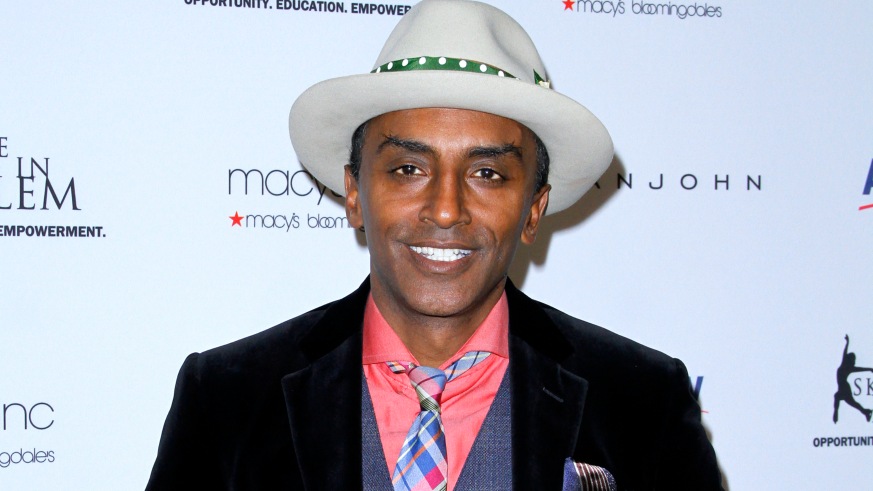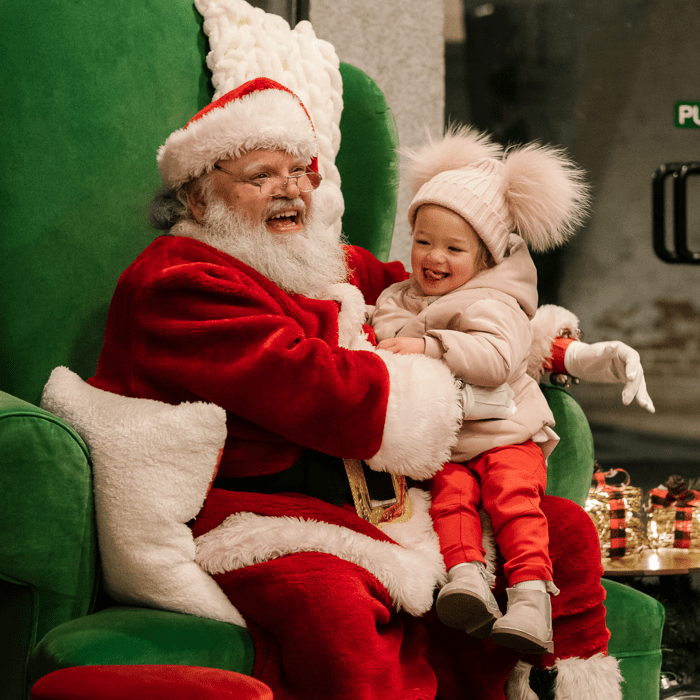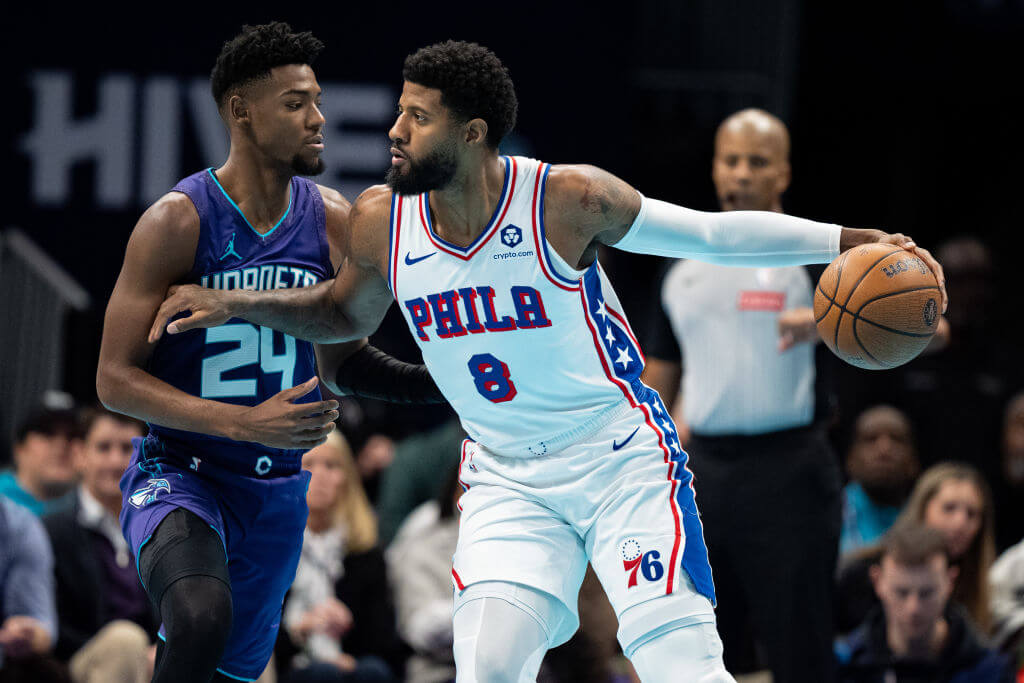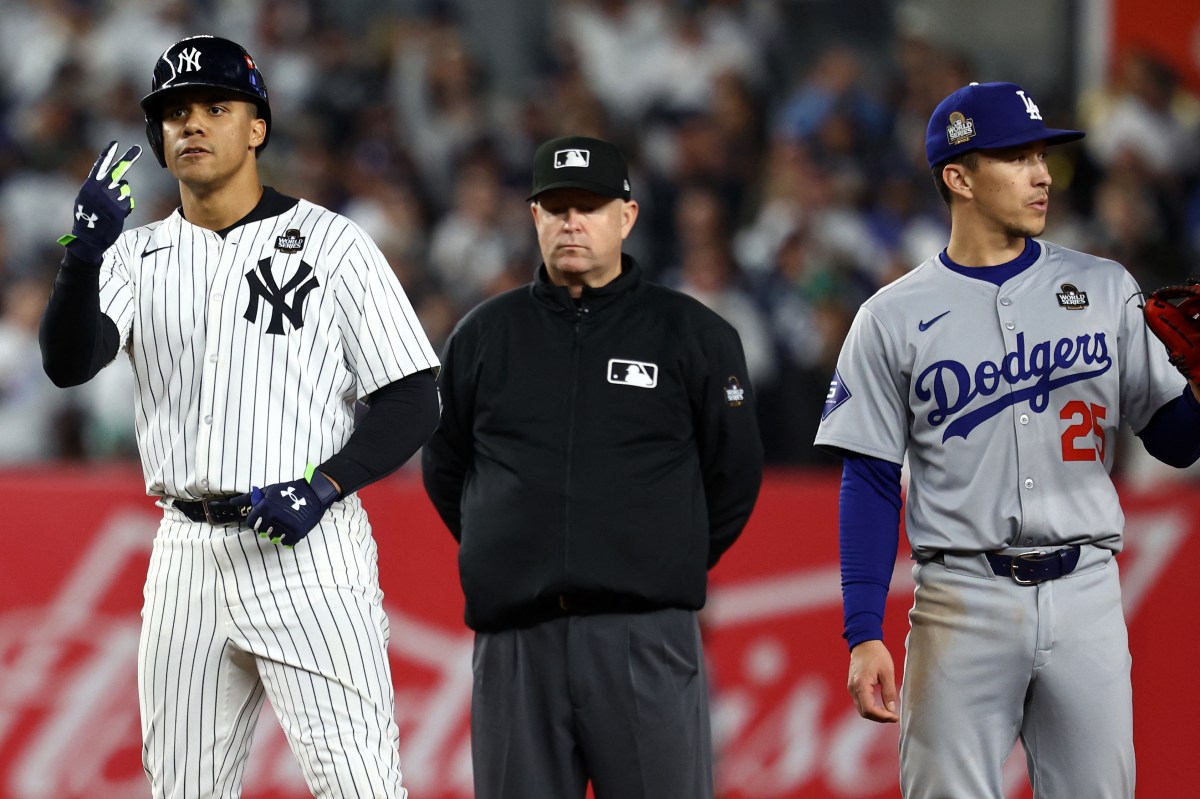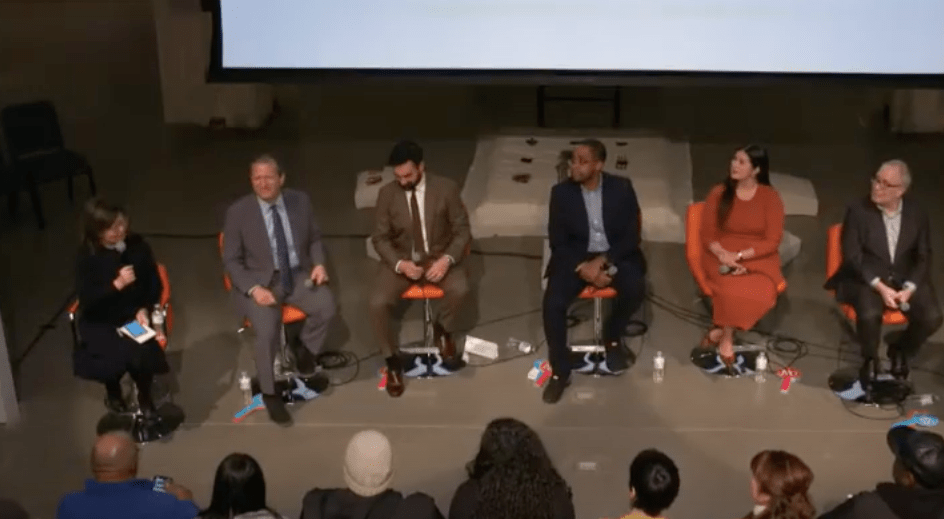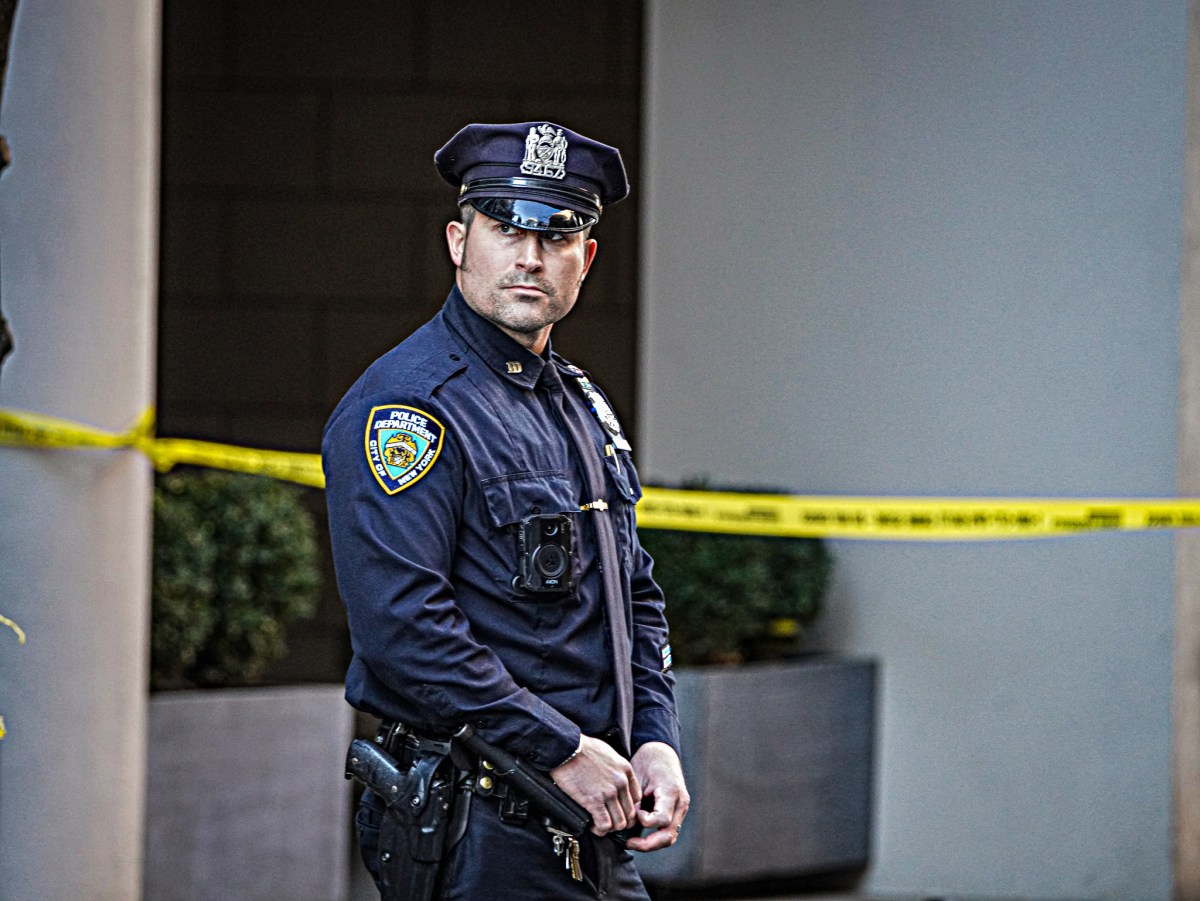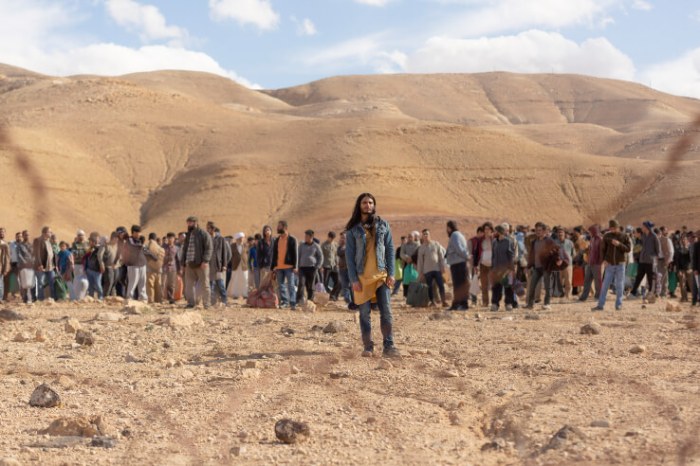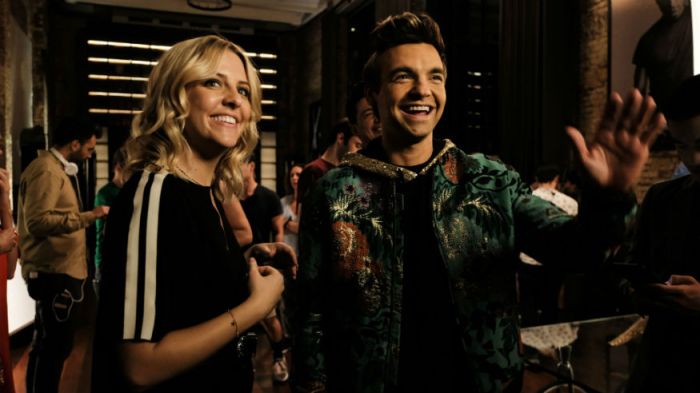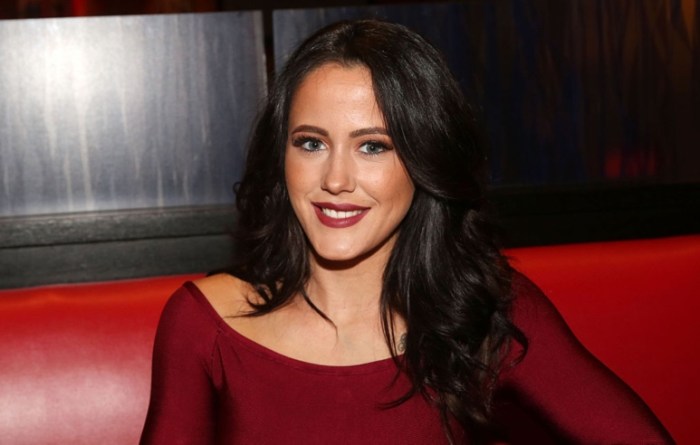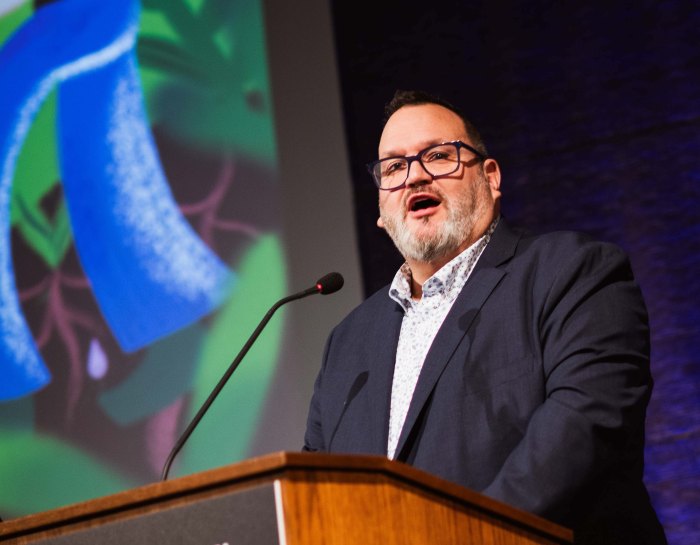Immigrants are a necessity in the culinary world, especially in the U.S. Just ask James Beard award winner, acclaimed author and fan-favorite “Chopped” judge Marcus Samuelsson, an Ethiopian-born, Swedish-raised chef and restaurateur who’s been making his mark on America’s food scene for decades. Samuelsson hopes to celebrate the power of diversity and the impact immigrants have in the kitchen while serving as the chief food officer for this year’s OZY Fest in New York, as well as with his new series “No Passport Required,” which debuts on PBS July 10. We caught up with Samuelsson to chat about this year’s fest, his friendship with Anthony Bourdain and more.
Why did you want to be a part of OZY Fest?
It’s a very unique experience. Most festivals are single subject. Here’s really a festival of the mind, where you have discussions about environment, about the political climate. What the community of OZY really does well is bring all types of thought leaders to the table. To be the chief food officer this year, it’s a real privilege.
What do you plan to bring to the table as this year’s chief food officer?
When we look at vendors and look at people to be part of it, we want it to be really about diversity and inclusion. This year in the middle of all this, my TV show with PBS “No Passport Required” is coming out, where we talk a lot about immigrant culture, what it’s meant to America and looking at these great cities. OZY is an extension of that. It’s highly diverse. There’s people coming from all over the world. Immigrants and this conversation is obviously the moment that we’re in too now. It’s going to be a highly debated topic. I’ll tell you one thing, without immigrants in this country, we would eat very, very differently, much blander. Festivals and cities like New York wouldn’t be as delicious. It’s something that works hand in hand.

Do you believe food can break down barriers between people?
Food and culture have always been what’s brought people together. If you want to learn about a culture, the easiest way is to set a table and have somebody from that culture cook for you. Next to that you have music, then you have literature and then you have, of course, art. Where would we be without the contribution of diversity and immigrants? It wouldn’t be the America that we know and it definitely wouldn’t be the America that I’m so passionately excited about. Learning other cultures through food has always been a way that America has evolved and learned how to go to the next phase, the better version of ourselves. It’s definitely the more delicious version of ourselves.
Considering how much influence immigrants have on the food industry and how many immigrants work in kitchens across the country, are you worried that the current political climate will negatively impact the culinary world?
Being worried, there’s nothing wrong with [it], because it forces you to think within what can people like myself, someone like Padma [Lakshmi] for example, someone like Martha Stewart do? We work within in the food culture and we discuss this constantly. We’re highly passionate about it. For me, my work, I go deeper. I try to think about how I can make the menu at Red Rooster more diverse. Even with this show, this is an opportunity to think about, as an immigrant, feeling pushed. You kind of have to manage your emotion and then figure out what content can I be part of that brings people together in a new way that you maybe didn’t see this culture or community before? Part of this is miseducation and misunderstanding. The only way to get around that is to educate in a different way and connect in another way.
The beauty about America, it’s a hard-fought battle where people go back and forth to create a better version. It may not look like it right now, but out of this, something else is going to come. Maybe this moment is that moment in time where conscious is going to shift and more learning and understanding on a spirtual level, on a connected level, can come out of it. That’s certainly what I hope and that’s what I’m investing my time in.

How much of an influence did Anthony Bourdain have on your approach to your new series?
Tony has been hugely influential to me for over 20 years. “Kitchen Confidential” probably paved the way for “Yes, Chef,” my memoir. There was no such thing as a chef’s memoir before, at least not in my field, before “Kitchen Confidential.” Tony influenced me deeply by working and being around him many, many times, whether we were having a drink at a bar in New York or traveling to Ethiopia together. Tony was an amazing storyteller, be he was also an amazing listener. That’s what I learned from him. Some of my happiest moments with Tony is being deep in the village of my wife, where he’s just drinking coffee with butter or watching over someone chopping up innards and he can’t wait to get his hands and eat on that. Just not being afraid to be somewhere else is something I learned from Tony. We talked about his show a lot as we were doing it. He gave me advice. Not just from a professional standpoint, but as a friend, he’s deeply missed. I thank him for everything he did for the culture and for our industry and connecting people. He was deeply interested in connecting people from different stories.
As a big soccer fan, what are your World Cup predictions?
Watch out for Belgium. It’s a small country, but they can play. They can really, really play.

